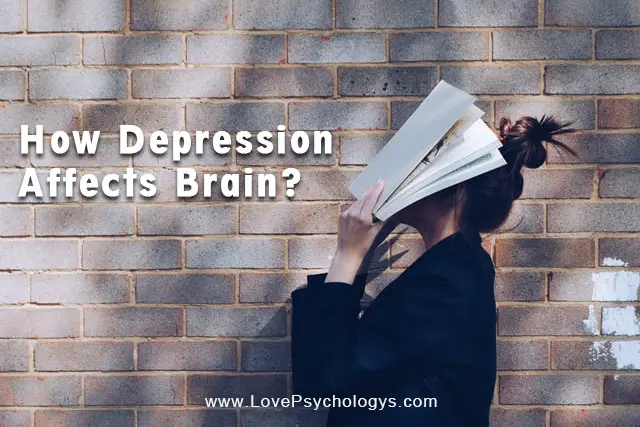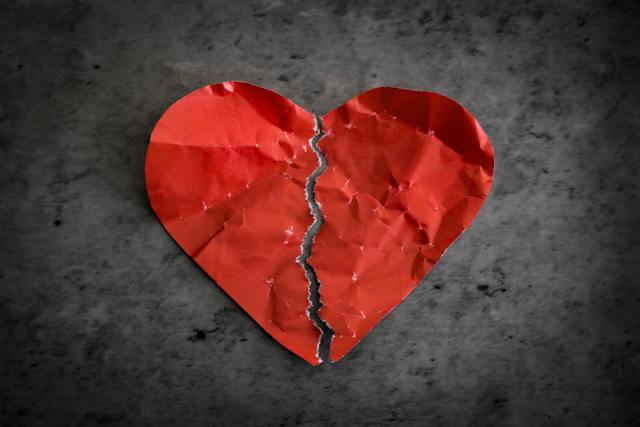
Many things can trigger debilitating depression. The feeling of depression is brought on by a chemical change that affects the way the brain functions. A normally functioning brain is a giant messaging system that controls everything out of your pulse, to walking to emotions.
The mind consists of billions of nerve cells called neurons. These neurons send and receive messages from the remainder of your body, using brain chemicals known as neurotransmitters. These mind chemicals-in varying amounts-are responsible for our psychological state. Depression happens when these chemical messages are not delivered properly between brain cells, disrupting communication.
Think about a cellphone: if your device has a poor signal, you may not hear the man on the opposite end. Their communication is dull or unclear. The good thing is that there are lots of forms of treatment which could help you cope with depression, such as medications that can fortify weak signals by raising the levels of certain neurotransmitters, or by enhancing the neurons’ ability to process signals. This makes certain that the brain’s vital messages are delivered–clear and loud.
We’re all guilty of saying “I’m sad” when we feel unhappy, but feeling down for weeks or even months on end signifies melancholy has become an illness. Depression causes a host of physical and psychological symptoms that can have a massive impact on your wellbeing.
How Depression Affects Brain and Body?
Mental illness caused by depression incorporates cognitive dysfunction, memory loss, low self-esteem, irritability, and nervousness. These signs can vary from moderate to so acute that you’re feeling hopeless. If you are feeling that way, it’s important to consult with your doctor.
Our Brain and Memory Functions Are Damaged by Anxiety and Depression
Depression has a significant effect on your memory and brain. These effects are collectively known as”cognitive dysfunction.”
Cognitive dysfunction means your brain isn’t working and it could. Individuals living with cognitive malfunction state it seems as though they’re lost in the fog; they overlook things often and feel confused.
How Does Depression Cause Memory Loss?
Scientists think there is a link between depression and memory loss because many studies have found that individuals with depression are less able to participate in new information.
As an instance, studies on people with depression imply that depressed people struggle to match objects on a screen with ones they’d previously seen.
Scientists think this is happening because the hippocampus, the region of the brain that deals with memory and emotions, shrinks.
MRI scans reveal decreased brain activity in the hippocampus, but it’s not known exactly why melancholy causes this reaction. Researchers suggest that floods of cortisol upset hormone levels, cause biochemical alterations, and disrupt neurotransmitters. Memory loss as well as the ability to think coherently are created even worse during fatigue.
The Main Causes of Depression.
Depression can be caused by many reasons, but they do not appear at a blood x or sample.
Listed below are some of the reasons depression can take hold.
Stress and Anxiety.
Anxiety is part of life, however overwhelming stress is harmful because it increases cortisol levels. Cortisol handles our fight-or-flight adrenaline reaction, and when it’s consistently raised, you’ll feel stressed and stressed all the time.
Brain Compounds.
Disruption of the neurotransmitters serotonin, dopamine, and norepinephrine can change our appetites, motivation, and our moods, which may lead to depression.
Long-Term Illness.
long-term illness can result in changes in brain chemistry.
Feeling anxious, or in pain for a long period of time is connected with depression. Stroke survivors and patients with cancer, arthritis, or thyroid problems are some of the groups more likely to develop depression as a result of the illnesses.
Poor Lifestyle Habits.
People who don’t get enough sleep, eat a poor diet, and consume an excessive amount of alcohol are associated with a raised risk of melancholy. Depression also causes these lifestyle habits, so it’s a vicious cycle.
Past History of Trauma.
Experiencing traumatic events may lead to depression–trauma can be anything from bereavement to a car crash. Any function which affects your psychological health can result in depression.
Your Genes.
If a close relative experiences melancholy, it’s more likely you will too.
Bipolar Disorder.
During a manic period, people may carry out dangerous activities such as gambling or speeding, but at the depression phase, they feel unable to leave the home.
Postnatal Depression.
After giving birth, some women are at risk of developing postnatal depression, also known as the baby blues. This often comes down to fluctuating hormones, but for many women, the feelings do not subside.
How To Fight Depression?
Depression is quite common, but there are tons of ways to treat it. This attitude does not help and can cause more issues. Depression is treated based on its seriousness in three unique manners.
1. Natural Methods.
St. John’s Wort is a herbal remedy that might help lift depression, but be careful if you choose the contraceptive pill, as St. John’s Wort may keep it from functioning properly.
L-theanine, found in green tea, may also have anti-depression advantages. Researchers consider it helps blocks the neurotransmitters that stimulate stress.
Others find that essential oils help them relax and reduce the stress that leads to depression.
2. Talking Therapies.
Talking therapies are often called psychotherapy. They aim to discover the reasons for depression and understand why folks feel as they do.
Here are the 3 main psychotherapies used as a treatment for depression.
- Cognitive Behavior Therapy (CBT) — that tries to alter behavior patterns.
- Psychodynamic Therapy — which is performed by a psychologist. Psychologists listen to whatever is in your mind to find out why you are depressed and how behavior is contributing to it.
- Counseling — which aims to help you consider your problems and find solutions.
3. Medication for Depression.
Antidepressant medication changes brain compounds by boosting “feel-good” dopamine to improve your prognosis. These medications may have side effects but aren’t addictive. Medicine is usually prescribed alongside natural methods and talking treatments to receive the best outcomes.
Depression Is A Serious Illness.
Depression can have an extreme effect on physical and psychological health–and a downward spiral of mental issues can be difficult to stop, especially if you’re already experiencing cognitive dysfunction and memory issues. If you are feeling sad, there are lots of treatments that may help. Speak to your physician to begin getting your life back on track.
Read more related articles: Major Depressive Disorder Treatments

